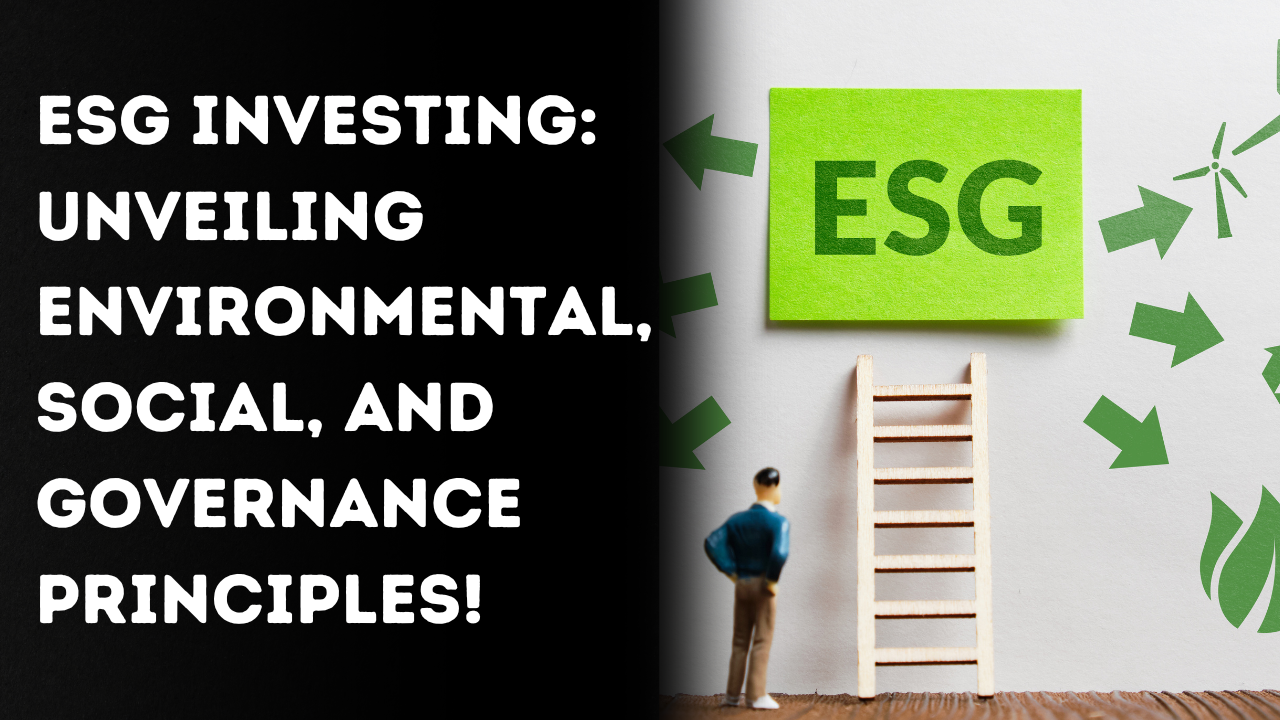What is ESG Investing?
17 Apr 2024 2 mins Investing

Introduction: In the realm of finance, Environmental, Social, and Governance (ESG) investing has emerged as a pivotal approach, emphasizing the importance of ethical, sustainable, and responsible business practices. This blog aims to delve deep into the intricacies of ESG investing, shedding light on its fundamental principles, methodologies, and the profound impact it has on both businesses and investors.
Key Takeaways
- ESG investing serves as a powerful mechanism to screen investments, encouraging companies to embrace responsibility and sustainability.
- Brokerage firms have responded to the growing demand for ESG investments by offering a plethora of products that align with these principles.
- ESG investing not only promotes ethical practices but also shields portfolios from exposure to companies engaged in risky or unethical activities.
Understanding ESG Investing
At its core, ESG investing encompasses a multifaceted evaluation of companies based on their environmental consciousness, social responsibility, and governance standards. Investors meticulously analyze a spectrum of behaviors and policies to ascertain whether companies are committed to upholding these vital principles.
ESG Metrics
Leading investment firms, such as Trillium Asset Management, employ a diverse array of ESG metrics to identify companies poised for sustainable long-term performance. These metrics span a wide spectrum, encompassing environmental conservation efforts, ethical supply chain practices, and robust corporate governance structures.
Impact of ESG Investing
The traction gained by ESG investments is palpable, with institutional giants like JPMorgan Chase and Goldman Sachs integrating ESG principles into their investment strategies. However, the true essence of ESG investing lies in its potential to catalyze tangible change, driving companies towards genuine commitment rather than superficial compliance.
Differentiating ESG and Sustainability
While ESG scrutinizes corporate conduct across environmental, social, and governance domains, sustainability extends beyond, encompassing the broader ramifications of these actions on society and the environment. Embracing ESG principles translates into fostering eco-friendly practices, promoting social inclusivity, and championing transparent governance structures.
Identifying ESG Investments
Navigating the landscape of ESG investments is facilitated by the provision of ESG ratings and scoring systems by financial institutions. Rating schemes developed by industry stalwarts like MSCI, Morningstar, and Bloomberg serve as invaluable tools for investors seeking to align their portfolios with ESG-aligned companies.
Bottom Line
ESG investing epitomizes a paradigm shift towards companies that prioritize positive environmental, social, and governance practices. As investors increasingly gravitate towards ESG-aligned investments, this approach heralds a new era of growth, characterized by its profound societal and environmental impact.